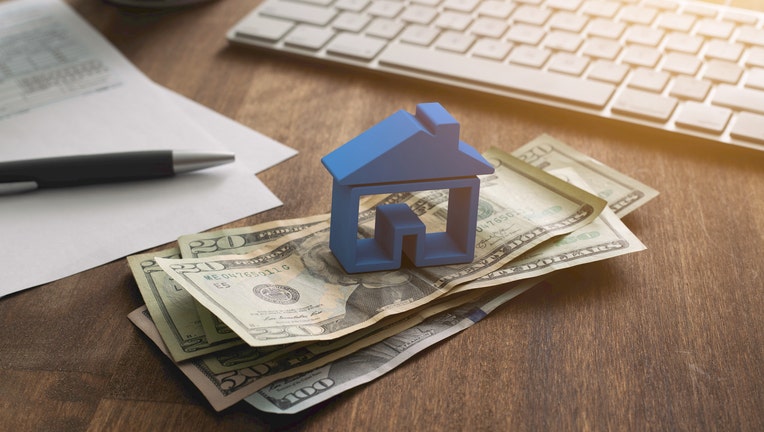5 ways to save money on your mortgage during coronavirus

If you’re struggling to may your mortgage, there’s help available.
Most Americans are feeling the effects of COVID-19 on the United States economy. Nearly 39 million Americans have already applied for unemployment aid. Unemployment rates are projected to near a record high. Additionally, the economy shrank 4.8 percent in the first quarter. To help ease some financial strain, the Federal Reserve reduced interest rates to zero percent in April. Despite the lower interest rate, many consumers are still feeling a pinch on their budgets.
If you’re struggling to keep up with your mortgage payments each month, here are a few personal finance tips to help. (Note: The tips in this article will help ease some of your mortgage loans — or housing payments — right now.)
How can I lower my monthly mortgage payment?
Refinance your mortgage
The Federal Reserve reduced interest rates to zero percent in late March as a response to the economic impact of the coronavirus. And as a result, mortgage rates hit a new record low at the beginning of May.
Refinancing your mortgage could help lower your monthly payment. If you have an adjustable-rate mortgage and the promotional terms are set to expire, this could be doubly beneficial for you. Before you refinance your mortgage, do a little math to determine if the cost of the refinance would offset any savings. Use Credible's free online tools to compare mortgage companies and see how much you could save right now.
If you're still wondering whether it's the right time to refinance your mortgage, consider these three factors — you're looking to lower your monthly mortgage payments, you plan on staying in your home longterm or you're hoping to alter the terms of your current home loan to pay off your mortgage faster.
If any of these factors appeal to you, then that may be a sign it's time to consider refinancing. To find your personalized rate within minutes, enter some basic information into Credible's online marketplace and finalize your loan.
MORTGAGE RATES HIT NEW RECORD LOW — HOW REFINANCING NOW COULD SAVE YOU MORE MONEY
Use your stimulus check
Using your stimulus check to cover your mortgage isn’t technically saving money, but it could help you avoid dipping into an emergency fund. If the other options don’t provide enough help, consider using your stimulus check to help cover your housing payments for a month.
The federal government issued stimulus checks to millions of Americans late last month. The stimulus check provided $1,200 for each qualifying individual. As of publication, the House and Senate are considering a second set of stimulus payments. Married couples could receive up to $2,400 plus an additional $1,200 per qualifying child. Individuals earning less than $75,000 per year and couples earning less than $150,000 per year, qualify for the full stimulus payment.
If you’re facing personal finance difficulties, you’re not alone. Consider renting out a room or storage space in your garage to help cover extra home expenses. Don’t forget to check out Credible if you’re considering refinancing to ensure you get the best deal and save on monthly payments.
SHOULD YOU USE YOUR STIMULUS CHECK TO PAY OFF DEBT?
Mortgage forbearance/pause
If you’re struggling to make your monthly mortgage payment due to COVID-19, you may qualify for mortgage forbearance. Some banks are offering clients up to three months of a mortgage pause.
While a suspension of your mortgage could save you upfront, some mortgage lenders require the borrower to repay the entire lump sum once the forbearance or suspension ends. If repaying the missed payments in one lump sum isn’t possible, ask your lender if they are willing to tack the missed payments onto the end of your loan. Adding the extra payments to the end of your loan would extend the amount of time you spent repaying the loan by the number of payments you missed without requiring a considerable sum of money all at once.
WHAT CREDIT SCORE DO YOU NEED TO BUY A HOUSE?
Call your lender
If your income has been affected by a job loss, reduced hours, or a job leave, call your lender or another financial advisor to explore options. Financial institutions don’t want to foreclose on homes. It’s expensive and time-consuming. Calling a lender as soon as you know you’re going to have problems paying off your mortgage will improve your odds of getting help from your lender.
WHAT ARE THE CLOSING COSTS FOR SELLING A HOME?
Under the CARES Act, you can request up to six months of deferred loan payments and a six-month extension after that. Mortgage lenders are only legally required to offer a six-month deferment and extension for federally backed mortgages.
You can avoid annoying collection calls by getting ahead of the problem and letting your lender know you’re not able to make your payments. Your lender can’t help you if they don’t know there’s a problem.
Consider a loan modification
You could save money on your current mortgage payment by requesting a loan modification. A loan modification could be an adjustment in interest rate, length of your loan repayment, switching from an ARM to a fixed-rate, or a combination of those three. A loan modification is less expensive and less complicated than refinancing because you’re not getting a new loan. To qualify for a modification, your lender may require that you’re in imminent danger of defaulting on your loan.

